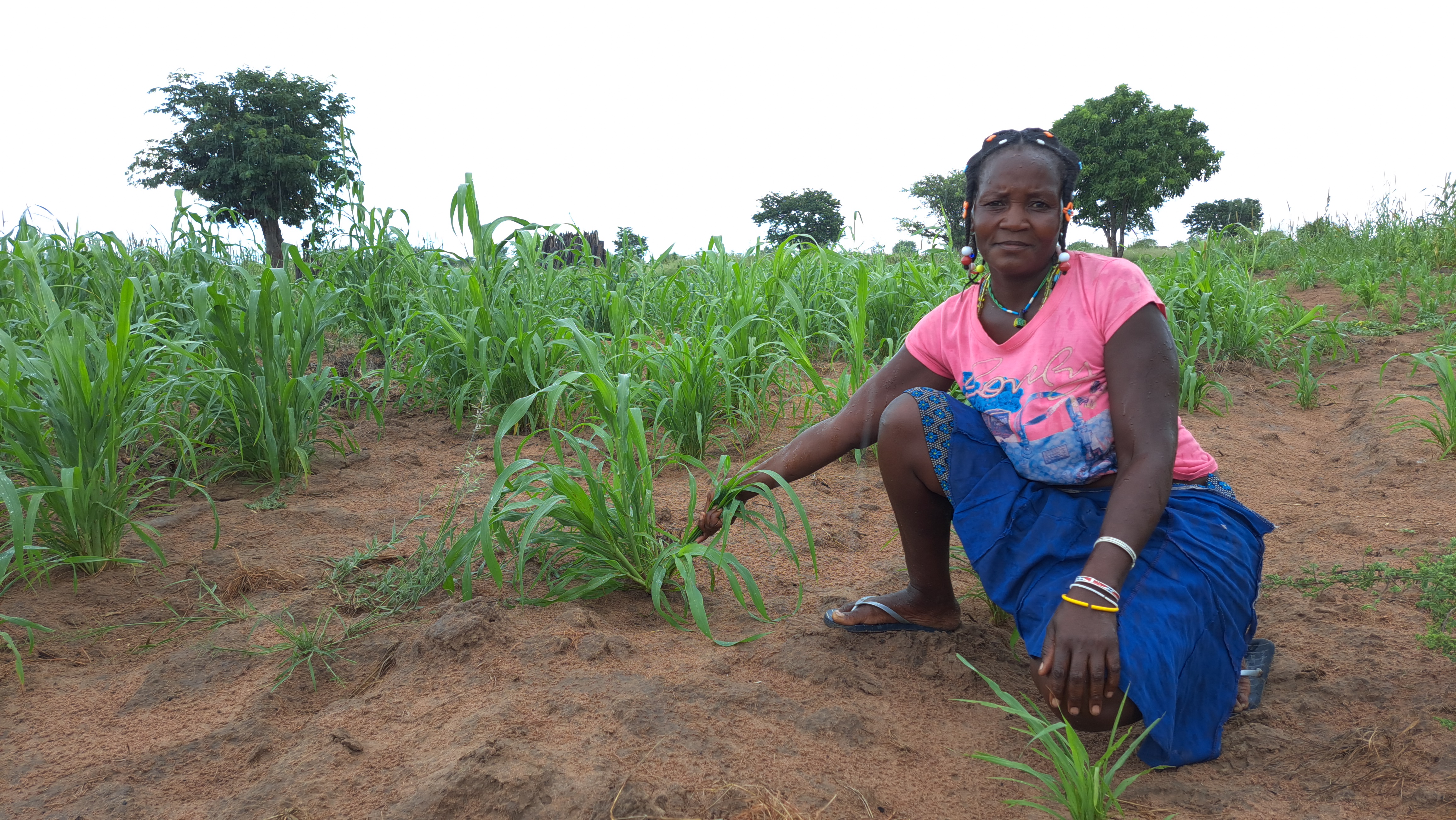Three generations of Angolans facing climate change
Southern Angola has grappled with drought for the past thirty years, a harsh reality exacerbated by worsening conditions each year. Since 1989, World Vision has been actively working in this region to mitigate the severe impacts of water scarcity. This ongoing situation increasingly jeopardizes farmers' yields and household food security.
When asked, local farmers struggle to explain the diminishing rainfall, citing climate change and El Niño without fully grasping their implications. This year, their only certainty is that hunger will persist in the months ahead.
André Joaquim resides in Cahama commune, Cunene province, near the Namibian border, where approximately 100,000 people live. At 59 years old, he heads a family of 15, including his wife, children, and grandchildren, all deeply concerned about their food supply.
"This year, our harvest will be scant. We had anticipated around 2 metric tons of millet, but we'll struggle to reach even 1 metric ton. This will barely sustain us for three to four months at best. The plants are stunted, and the grains are unusually small. Another challenge we face is the frequent appearance of pests— insects and larvae— that destroy whatever little we manage to grow," laments Joaquim.
Reflecting on the past, Joaquim recalls a time without such hardships due to food insecurity.
"I don't recall ever going to bed hungry as a child, but with the scarce rainfall now, our crops suffer immensely. The plants simply do not grow enough and wither away too quickly. To survive and buy essentials, we're forced to sell our animals. Prices have skyrocketed recently, making it unaffordable to purchase as we once did. My children face far greater challenges today than I did at their age. I even have grandchildren suffering from malnutrition, and it breaks my heart."
Joaquim, his wife, and older children are participating in the "Creating Resilience" project implemented in Cunene province by World Vision Angola and funded by Azule Energy. They benefit from Farmer’s Field School and community savings boxes. However, despite learning new techniques and utilizing drip irrigation, replicating optimal planting conditions on their plot remains a daunting task due to limited water access.
Migration and Temporary Measures
According to Neto Baltazar, Cahama's Deputy Administrator for Technical and Infrastructure, approximately 10,000 people have migrated elsewhere during dry seasons since 2019, seeking livelihoods and better opportunities. Those returning to Cahama in early 2023, hoping for favorable rainfall, couldn't plant crops and now struggle to survive until August before moving on to other areas within the province and beyond, where livestock trading is their only option.
Josefa João's story epitomizes this trend. At 40 years old, she heads a family of four children. In late 2022, she sold her few chickens and moved to Namibia, where some of her siblings reside. For the past year, she has worked as a maid. When rains began in her Namibian town in December 2023, she returned to Cahama to revive her neglected farm. Using savings from Namibia, she bought millet seeds to grow and produce flour. However, persistent dry weather has stunted her crops.
"It's now late March, and my plants are still too small. I won't harvest anything, and I'm unsure how to feed my children as I've already sold all our animals. Alone here, I can only rely on my neighbors' assistance. If things don't improve, I may need to leave the country again, or else we'll face dire circumstances."

Local authorities have made efforts to address the crisis and stem the tide of people leaving their lands. They constructed dams to secure water access and distributed improved seeds and tools, yet these measures alone are insufficient.
"Hunger will persist at least until December, and we anticipate a significant rise in malnourished children. In such times, we rely on organizations like World Vision not just for food and agricultural supplies, but also for treating malnourished children," states Baltazar.
Despite early harvesting, crops remain immature, jeopardizing food availability, sometimes supplemented with vegetables intended for livestock.
"We're boiling tchila mangongo, a type of watermelon we used to feed pigs because we lack other food. It's embarrassing, but it's our reality. Even animals suffer from water and pasture scarcity," admits Luís Alberto, a 56-year-old farmer.